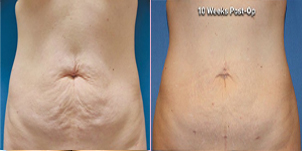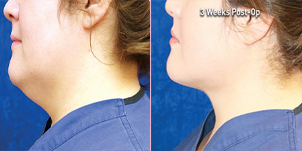Breast Reduction
Conveniently located to serve the areas of Miami, FL
Things you need to know about your surgery
While a lot of people are more aware of increasing breast sizes for women, there is a growing number of people who are opting for breast reduction surgery. This process involves removing excess fats in the breasts to correct certain conditions or to simply improve one’s appearance.
Contents
Procedure
Also known as mammoplasty, breast reduction surgery involves reducing and shaping the breasts in order to be more proportionate with their bodies. But there are other reasons why it is a necessary procedure.
1. Chronic Back Pain
For women who have big breasts often experience chronic back pain that can lead to more complications down the road. To protect their back muscles and posture, it is sometimes necessary to reduce breast size and avoid chronic back pains.
2. Breast Rashes
Breast rashes are not new to people who have huge breasts. This can be extremely inconvenient for a lot of women since they need extra caring for the underside of the breasts.
3. Daily Inconveniences
Aside from breast rashes, there are other inconveniences with having huge breasts. There are several other reasons such as poor self-image and difficulty finding the right bras that you’ll feel comfortable with. Sometimes, women just prefer to have smaller breasts in order to feel better about themselves.
4. Fixing Certain Conditions
It is commonly done for women but some men also need to undergo breast reduction for certain reasons such as gynecomastia, which is the abnormal growth of breasts for men.
5. Improve Appearance
Some men and women will feel better about themselves after a breast reduction. For example. trans men will be more comfortable with their bodies after breast reduction surgery.
Preparation
There are several things to be done to ready yourself before a breast reduction surgery. You have to prepare your body at least a month before the surgery to avoid any complications after the surgery.
Pre-Surgery Precautions
1. Visit A Medical Professional
Once you have decided to have a breast reduction surgery, the first thing you should do is to visit a medical professional that is licensed to perform a surgery.
Make sure that you approach a trusted surgeon since breast reduction surgery is a delicate operation and it can impact you for a long period of time.
2. Mammogram
Of course, before any surgery, your doctor needs to have proper tests to make sure that your body is prepared for the surgery. Usually, a mammogram will be enough for a doctor to assess if you are fit to undergo the surgery.
3. Prepare Emotionally For The Change
3. Prepare Emotionally For The Change
While this is not the focus of a lot of people, you should prepare yourself for the physical changes you may experience.
Of course, some women would feel emotionally better once the surgery is over, but for the first few weeks or months, you will have to adjust to your new physical appearance.
Things To Remember
Your doctor will advise you to prepare for the surgery and may suggest a change in your lifestyle to help you recover faster and avoid any complications after the procedure. The following are a few things you should take note of before the surgery.
1. Stop Smoking
Smoking before any big surgery can have some effects. Several studies show that smokers are more likely to experience complications after the surgery. It is revealed that smokers are three times more likely to develop T-junction necrosis compared to people who have undergone the same surgery but do not smoke.
It is suggested that a woman stops smoking for 6 to 8 weeks before the surgery. You need to give your body enough time to recover from the nicotine and other chemicals found in a cigarette.
After that, it is recommended that you avoid smoking cigarettes as long as possible, but generally, 1 to 2 months is safe enough to smoke again.
2. Avoid Taking Certain Medicines
There are certain medicines such as aspirin and other anti-inflammatory drugs that can affect the surgery. It is best to ask your doctor about the things you cannot take before the surgery. Best avoid taking things that can increase bleeding as it may prolong your recovery time.
Certain herbal medicines can also increase blood flow. It is best to avoid such medications until you are fully healed from the surgery. You can ask your doctor about certain medications in case it is truly needed.
Results
How Long Do The Results Of A Breast Reduction Last?
After the surgery, you no longer have to worry about the inconvenience of bigger breasts. There is no reason to worry about your breasts going back to their full size as the results of the operation will be permanent.
However, gaining weight can also contribute to your breast’s size. Your breasts will store fats at the same rate with the rest of your body, so you do not have to worry about it being disproportional, but it is better to maintain your weight to avoid any complications.
Just remember that breasts can still sag due to old age, after which, you may decide to have another surgery to make them look better.
Recovery
How Is Breast Reduction Surgery Recovery?
Like any other major surgeries, people who undergo breast reduction surgery require a lot of time to recover. It differs from every person and there are other factors that can affect your recovery time.Generally, it takes 2-3 months for the breast to fully heal. After that, you can enjoy your new normal with different breasts that can improve your life.For the first 6 to 12 months, you will notice a few changes with your breasts. This is pretty normal for a lot of patients who have undergone surgery.You have to prepare yourself for scars and bruising. However, you should immediately contact your doctor if you are noticing certain side effects that seem to be out of the ordinary.
Must Haves
- Stool softener.
- Neosporin.
- Baby wipes.
- A booty pillow.
- Protein shakes and vitamins for post-op.
- Compression, garment, and stockings.
- Slip-on shoes.
- Female urinal (you won’t sit immediately after surgery).
- Antibacterial soap for cleaning.
- Q-tips and alcohol pads.
- Arnica tablets because they help with swelling and bruising.
- Medical tape and gauze pads.




